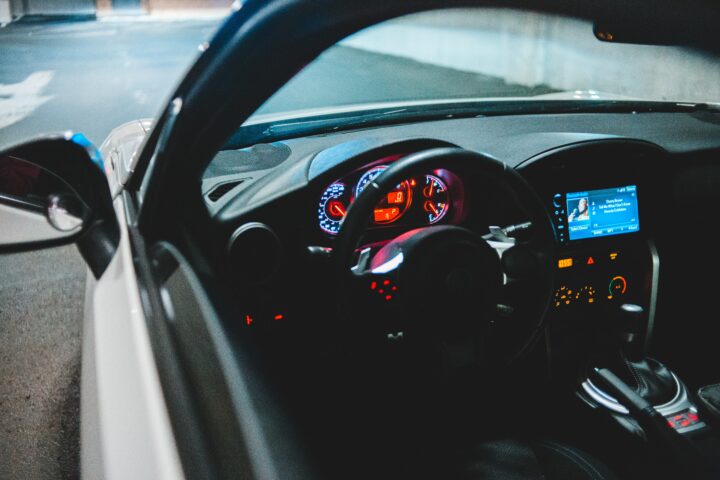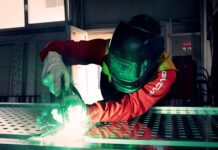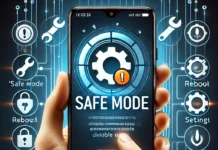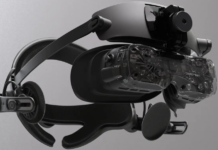 Self-driving cars are said to be a safer ride, as they eliminate sensing and perception errors, i.e., they perceive the surrounding driving environment accurately. Most serious crashes occur due to some type of human error, so re-engineering the system is the best way to improve future performance. Higher levels of automation remove the human driver from the chain of events that can lead to an accident. Unfortunately, self-driving cars aren’t 100% perfect, so they can’t make the roads completely safe. There’s no denying that autonomous vehicle technology can reduce collisions, but it can’t prevent all mishaps caused by human error.
Self-driving cars are said to be a safer ride, as they eliminate sensing and perception errors, i.e., they perceive the surrounding driving environment accurately. Most serious crashes occur due to some type of human error, so re-engineering the system is the best way to improve future performance. Higher levels of automation remove the human driver from the chain of events that can lead to an accident. Unfortunately, self-driving cars aren’t 100% perfect, so they can’t make the roads completely safe. There’s no denying that autonomous vehicle technology can reduce collisions, but it can’t prevent all mishaps caused by human error.
Self-driving cars react faster than humans because they don’t drive drunk, drive while texting, or get tired, but we’re still going to see some issues. It’s going to take some time for autonomous vehicles to be fully deployed. If you were injured in an accident involving a self-driving car, the automaker, the software company, or a third party could be held liable. Retaining legal counsel is of the essence, yet there are other things to be aware of. An autonomous vehicle accident is a complex matter, so each case requires thorough investigation, research, and legal/technical knowledge.
Rear-End Collisions Are the Cause of Accidents Involving Self-Driving Cars
A rear-end collision takes place when a car crashes into the one in front of it. More often than not, the cause of the accident is negligence, meaning the driver wasn’t reasonably careful and, consequently, injured another person. Rear-end collisions are common with self-driving cars; some collisions are minor, and others are newsworthy. A possible explanation for the ever-increasing number of crashes is that autonomous vehicles drive in unexpected ways, taking human drivers by surprise. Self-driving cars won’t get to a point where they can make driving safer without being tested on public roads.
Sideswipes are also common. For the sake of clarification, a sideswipe is an accident in which two cars driving next to one another suddenly make contact. Drivers’ maneuvers of conventional vehicles don’t necessarily depend on the presence of autonomous vehicles. Negligence, distractions, and even driving under the influence fall into play. Other less common accidents by self-driving cars involve pedestrians, cyclists, and stationary objects. The point is that there are many things to solve, and it will take time to get there, which might not be very reassuring.
So, Who Is Liable in a Car Accident?
The term “self-driving” is somewhat confusing. A self-driving car can drive itself, but a human passenger must be present (and ready) to take control. Fully autonomous vehicles don’t exist yet, but some automakers and technology companies are getting closer and closer.
A self-driving car relies on sensors, actuators, complex algorithms, machine learning systems, and powerful actuators to execute software. The question now is: Who is potentially to blame? The parties generally liable for crashes involving autonomous vehicles are:
The Driver of The Self-Driving Vehicle
Even if the car can be operated without the intervention of the user, that doesn’t mean the vehicle is responsible for what happened. As mentioned previously, most vehicles today aren’t fully autonomous, which means that human drivers must oversee the technology and step in if the software makes a mistake.
Simply put, negligence is still a potential factor. If a person fails to recognise the warning signals, they could be liable for the collision. Maybe you, too, have a self-driving car. In that case, don’t put too much confidence in the vehicle’s autonomous capabilities; otherwise, you’re taking on a huge risk.
The Automaker
Car manufacturers such as Volvo and Mercedes have stated they will assume liability should one of their self-driving cars cause an accident. The negligence of the automated driving system resulted in the crash, so the automaker is to blame for the unfortunate event.
Under the law, manufacturers of self-driving cars are required to design safe models, ensure their own machinery, inspect the vehicles for problems, and properly test them before releasing the vehicles onto the market. You can file a personal injury case against the car manufacturer, but it’s more difficult than suing the other driver. You may visit Accident Claims (accidentclaims.co.uk) to learn more about this.
The Software Company
Self-driving cars are tested and developed by manufacturers worldwide; they employ sensors, cameras, and artificial intelligence to get from point A to point B. Technology enables vehicles to be intelligent, so they can handle complex driving circumstances, such as other automobiles, bicycles, and pedestrians.
Regrettably, autonomous driving systems are prone to errors because they’re still in their infancy, meaning they can cause more problems than they’re worth. Liability for any accident will fall on the software company rather than the driver if there’s a glitch in the system and it fails to recognize an incoming hazard.
A Third Party
Car crashes involve the negligence of a third party, so you can seek compensation from that entity by filing a claim with their insurance company or filing a personal injury lawsuit. The third party could be a vehicle repair shop.
Autonomous vehicles don’t need as much maintenance and service as gas-fuelled ones, yet they still require some fixes. Faulty maintenance can make a self-driving car dangerous, so the dealership must compensate you for your accident-related losses. The same rule applies if the collision was the result of poor road construction.
Final Considerations
Self-driving cars have become more and more prevalent, operating with minimal human assistance. Advancements in technology have created new opportunities and not-so-desirable outcomes, such as safety risks. The nature of the system requires the human and the vehicle to engage in a collaborative manner, so it’s challenging to determine liability.
Claims for damages should encourage manufacturers to invest in addressing the defects of their products so that people don’t experience serious physical injuries. Someone having a licence might not make a difference in how the self-driving car acts.
All in all, you can sue if a self-driving car is responsible for an accident. A personal injury lawyer can help you determine your rights and options, especially if you’re in a dilemma.


















Thanks for the wonderful post